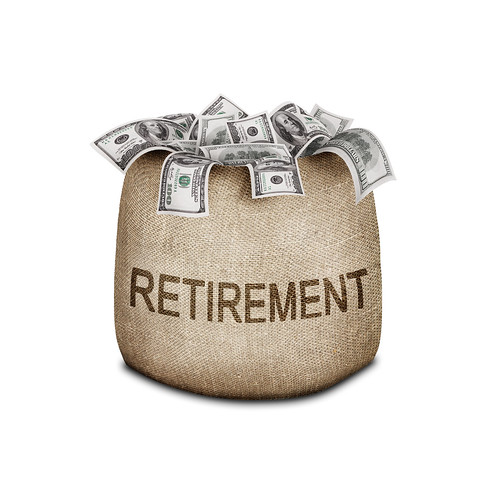Retirement can sometimes be like that one cousin at family gatherings. The one that nobody likes to talk about. I think that, like that cousin, it’s easier to put our retirements out of our minds simply because, for many of us, it’s still so far away. We’ve still got 10, 20, 30, or even 40+ years before we hit that golden age of 65.5 and start living the good life of retirement. Naturally, our nearer goals are at the front of our minds and take up most of our thoughts. After all, which are you more likely to worry about? Your upcoming performance evaluation next week, or your retirement in 35 years? Retirement never stood a chance. But, like that cousin, you’ve got to think about your retirement sooner or later. And, the sooner you start thinking about it, and preparing for it, the better off you’ll be when it comes time to face it.
In fact, the sooner you start saving for retirement, the better off you’ll be. Not only will you have to save less because of the wonders of compounding returns, but you’ll have more to show for it when it comes time to retire. At an average of 7% return, any money that you save for retirement will double every 10 years. What does that mean? If you wait an extra 10 years to start saving for retirement, you’ll have effectively cut your retirement fund in half, and will need to either drastically increase the amount you’re saving each month, or learn to live on less in retirement.


Saving for your retirement doesn’t have to be complicated either. Sometimes, it’s downright easy! How do you make the most of your early retirement saving? Stop leaving it on the table. Get active with your savings. Go beyond being active, and be pro-active. Start with your employer. If you’ve got a 401(k) through your employer, take advantage of it. Contribute up to the full amount that your employer will match. Your HR department will help you get it set up, and give you the information on the match so that you can do that. Most 401(k) programs will have a set of target date funds that can be used to effectively set your 401(k) on autopilot. If you don’t want to be involved in the choosing of funds for the money to go into, the target date funds can be a great choice.
Once you’ve gotten the full match from your employer in your 401(k), you might want to look into a private pension plan or an IRA as well. For most, the Roth IRA, with it’s tax free growth and withdrawals is probably the right choice. If you’re under 50, you can contribute up to $5,000 every year into an IRA. Use your tax refund, if you get one, to give yourself a boost each year on meeting that $5,000 limit. If you’ve still got more retirement saving to do after you’ve met the contribution limit, you can up your deduction into your 401(k).
If you need more help with your retirement, or help figuring out what, how much, and when to save, find yourself a retirement expert. Your CPA or a certified financial planner should be able to give you a detailed plan for your retirement savings. The most important thing you have to remember with all this retirement talk is that if you don’t save, you won’t have any retirement funds to worry about. Unless you want to count on Social Security to fund your retirement. I’ve seen people who have done that. You don’t want to be in their shoes. Get your retirement saving started today. It really is important. Even more than that performance evaluation.

I started this blog to share what I know and what I was learning about personal finance. Along the way I’ve met and found many blogging friends. Please feel free to connect with me on the Beating Broke accounts: Twitter and Facebook.
You can also connect with me personally at Novelnaut, Thatedeguy, Shane Ede, and my personal Twitter.

